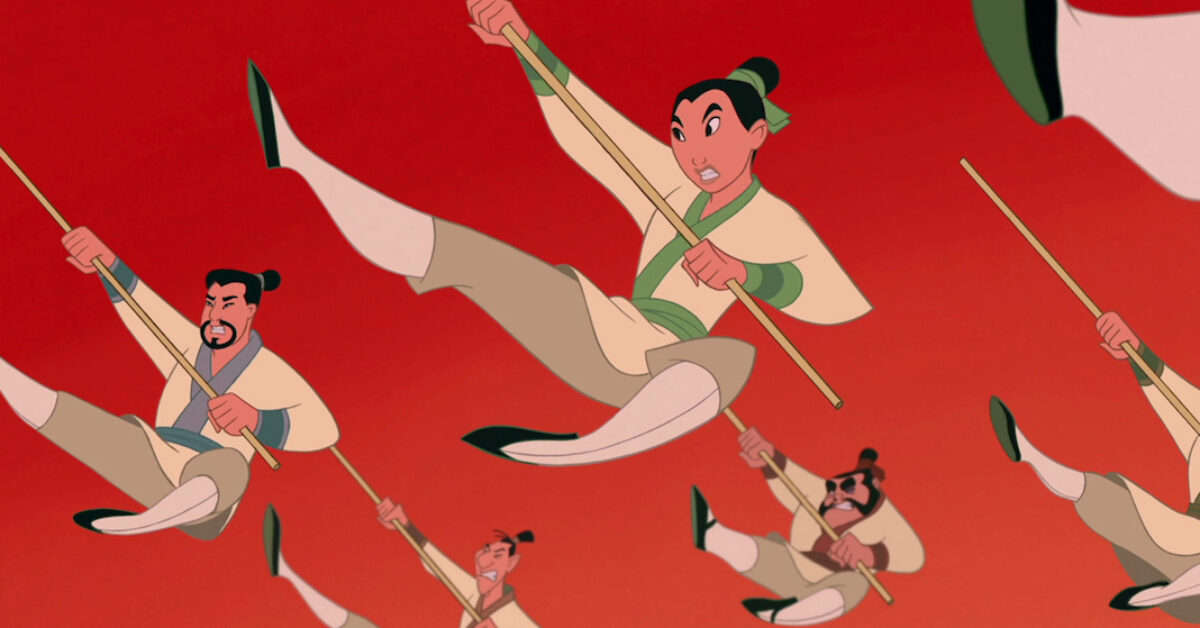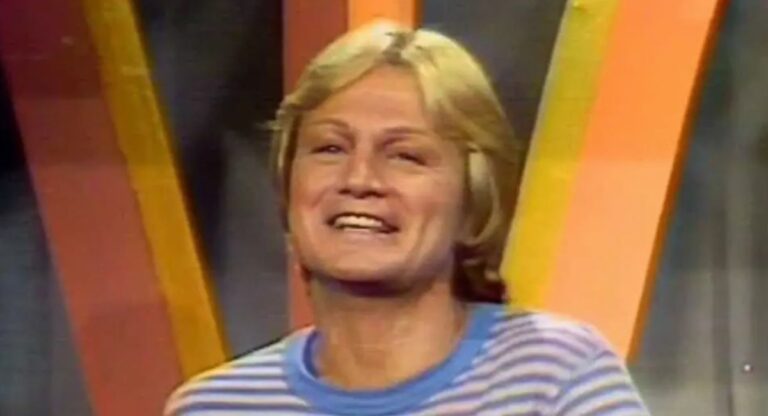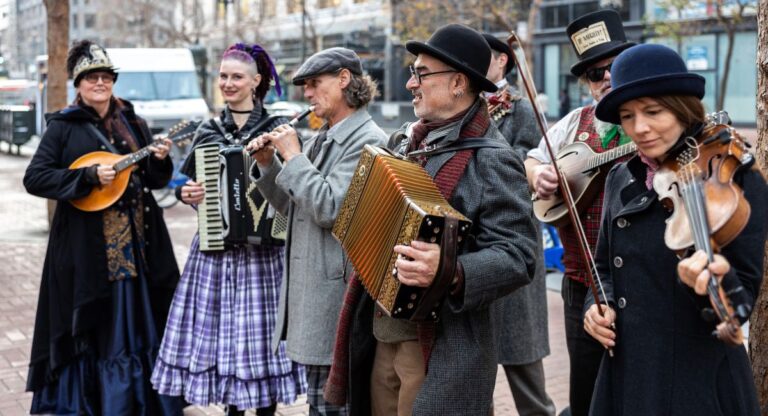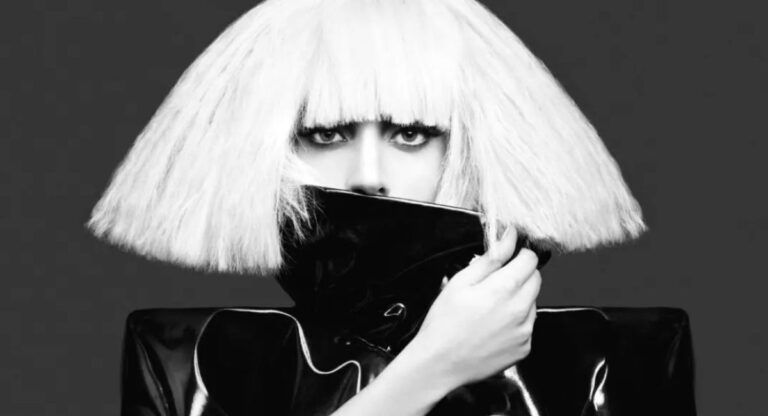Though many people in France watched Malcom in the Middle, they have never heard Bryan Cranston’s voice. Instead of adding subtitles to films and TV shows, France prefers to have content lib-dubbed with French voice actors. Disney movies and their catchy, heart-warming tunes are no exception: the songs must be rewritten in French and re-recorded with French singers. Here are 16 of the best French versions of classic Disney movie songs.
The Best French Versions of Disney Songs:
- Aladdin, “Prince Ali” / Aladdin, “Prince Ali”
- Sleeping Beauty, “Once Upon a Dream” / La Belle au bois dormant, “J’en ai rêve”
- Rapunzel, “I See the Light” / Raiponce, “Je veux y croire”
- Mulan, “I’ll Make a Man Out of You” / Mulan, “Comme un homme”
- The Princess and the Frog, “Almost There” / La Princesse et la Grenouille, “Au bout du rêve”
- Hercules, “I Won’t Say I’m in Love” / Hercule,”Jamais je n’avouerai”
- Mary Poppins, “Feed the Birds” / Mary Poppins, “Nourrir les p’tits oiseaux”
- Tarzan, “Son of Man” / Tarzan, “Enfant de l’homme”
- Cinderella, “So This is Love” / Cendrillon, “C’est ça l’amour”
- Moana, “You’re Welcome” / Vaiana, la légende du bout du monde, “Pour les hommes”
- Aristocats, “Everybody Wants to Be a Cat” / Les Aristochats, “Tout le monde veut devenir un cat”
- The Hunchback of Notre Dame, “God Help The Outcasts” / Le Bossu de Notre Dame, “Les bannis ont droit d’amour”
- Beauty and the Beast, “Belle” / La Belle et la Bête, “Belle”
- Frozen, “Let It Go” / La Reine des Neiges, “Libérée, délivrée”
- Peter Pan, “You Can Fly” / Peter Pan “Tu t’envoles”
- Dumbo, “Baby Mine” / Dumbo, “Mon tout petit”
1. Aladdin, “Prince Ali” / Aladdin, “Prince Ali”
“Prince Ali, oui c’est bien lui, Ali Ababwa!” The general playful spirit of this number has been retained in its French translation thanks to the excellent casting of Genie, who is doing his best to sound like his superb American counterpart, Robin Williams.
2. Sleeping Beauty, “Once Upon a Dream” / La Belle au bois dormant, “J’en ai rêve”
Another excellent choice by casting, though Beauty’s voice isn’t quite as strong in her airy French. The lyrics to this quintessential Disney tune are just as dreamy in French: “Toi ma destinée / je saurais t’aimer / J’en ai rêvé” (You’re my destiny / I would know how to love you / I dreamed about it).
3. Rapunzel, “I See the Light” / Raiponce, “Je veux y croire”
You’ll think it’s Mandy Moore and Zachary Levi singing, but it’s actually just Disney’s casting team doing its job. “Et je vois dans ce regard” (and I see in this light) takes over for the refrain “and at last I see the light” in the chorus, and “now that I see you” becomes “je veux croire en vous” (I want to believe in you). It’s romantic, it’s uplifting, and the second you finish listening to it you’ll start hunting for someone to duet with you.
4. Mulan, “I’ll Make a Man Out of You” / Mulan, “Comme un homme”
Every child of the 90s knows that when someone says, “let’s get down to business!” you respond, “to defeat the huns!” Though “Attaquons l’exercice pour défaire les Huns” doesn’t quite have the same ring, this rendition is just as delightfully punchy, especially during the chorus. (And the parts when Chien-Po, Yao, and Ling come in are exceptional as well.)
5. The Princess and the Frog, “Almost There” / La Princesse et la Grenouille, “Au bout du rêve”
With the horns and jazzy tempo, this song shifts seamlessly from English to French. Tiana is “au bout du rêve” (at the start of a dream) in this version. Listening to this song, you’ll find yourself shimmying your shoulders and tapping your foot in no time.
6. Hercules, “I Won’t Say I’m in Love” / Hercule,”Jamais je n’avouerai”
The translation, the choice for the voice of Meg, the overall sound of the Frenchified song — fantastic. The last line of “Jamais je n’avouerai” (I’ll never dare) is perhaps even better in French: “Ooooh, oserai-je un jour t’avouer comme je t’aime” (Ooooh, will I ever dare to tell you how much I love you?) as opposed to, “Ooooh, at least out loud I won’t say I’m in love.”
7. Mary Poppins, “Feed the Birds” / Mary Poppins, “Nourrir les p’tits oiseaux”
It’s no Julie Andrews, but the voice of Mary Poppins in the French version singing “Nourrir les p’tits oiseaux” maintains the same charm, mystery, and hypnotic quality. The same can be said of the lyrics: “Listen, listen she’s calling to you” becomes “Sans cesse, sans cesse l’appel va vers vous” (never stopping, never stopping the call comes to you). It’s a version that’s worth a listen and — dare we say it — you might like it more.
8. Tarzan, “Son of Man” / Tarzan, “Enfant de l’homme”
Phil Collins composed and sang the entire Tarzan soundtrack, minus the tracks sang by the cast themselves (shout out to Rosie O’Donnell). A multilingual, Collins knows enough French, Spanish, and German, and Italian he was able to do the soundtrack in each language.
9. Cinderella, “So This is Love” / Cendrillon, “C’est ça l’amour”
Even more swoon-worthy than in English, the voices, the duet, and the lyrics have been interpreted perfectly in French: “Mon coeur s’affole / Et je m’envole / Je danse sous une pluie d’étoiles / Tu es ce que j’attendais / Tu es mon rêve fou” (My heart is racing / and I’m flying / I’m dancing under a shower of stars / You’re what I’ve been waiting for / You’re my crazy dream).
10. Moana, “You’re Welcome” / Vaiana, la légende du bout du monde, “Pour les hommes”
We would like to lodge a formal complaint with Disney against whoever made the choice to turn a one-word title (Moana) into a seven-word title (Vaiana, la légende du bout du monde, meaning Vaiana, the legend at the end of the world). The stereotypical confidence of the French adds well to this song, “You’re Welcome,” which in French has become “Pour les hommes” (for men). The little rap break in the middle is just as good in French and we’d encourage to memorize it (we are).
11. Aristocats, “Everybody Wants to Be a Cat” / Les Aristochats, “Tout le monde veut devenir un cat”
First: “Aristochats” is an adorable word. Second: the fact that “Cats” didn’t turn into “Chats” in the title of the song means that the Anglophone cats that thought they were singing about how everyone wanted to be them will be sorely disappointed when they find out they were actually singing about how everyone wants to be a very cool person (the slang meaning of “cat”). Third: this song is fantastic in French. Maybe better than in English.
12. The Hunchback of Notre Dame, “God Help The Outcasts” / Le Bossu de Notre Dame, “Les bannis ont droit d’amour”
Ignoring the fact that “The Hunchback of Notre Dame” is a very dark story to make into a Disney film for kids, “God Help the Outcasts” is quite beautiful in French. The French lyrics and accent sound, arguably, more correct than the English ones, and logically so: it’s a French tale written by a French man set in France.
13. Beauty and the Beast, “Belle” / La Belle et la Bête, “Belle”
Named exactly the same in French as in English, we do wonder if the French ever found Belle’s name strange. It’s the equivalent of her name being Beautiful. That aside, this song surpasses its English counterpart. Seeing as how Beauty and the Beast is a French fairytale set in a French town (the French character names should’ve been a giveaway), this number’s translation into French sounds even more correct than the English version.
14. Frozen, “Let It Go” / La Reine des Neiges, “Libérée, délivrée”
The most viewed song on Disney France’s YouTube channel, “Let It Go” has become “Libérée, delivrée” (liberated, freed) in French. Besides the singer (Anais Elva) sounding like Idina Menzel, the lyrics are great. “Here I stand” became “Je suis là” (I’m there) and “The cold doesn’t bother me anyway” became “Le froid est pour moi / le prix de la liberté” (for me the cold is / the price of freedom).
15. Peter Pan, “You Can Fly” / Peter Pan “Tu t’envoles”
The sing-songy, horn-laden “You Can Fly!” becomes “Tu t’envoles” (you fly away) in France’s version of Peter Pan. It’s just as jazzy and charming in French as it is in English to hear the choir of voices singing about rêves and couleurs as Peter and the three kids fly off to “Le Pays Imaginaire.”
16. Dumbo, “Baby Mine” / Dumbo, “Mon tout petit”
“Ne crains rien, sèche tes pleurs / viens sur mon cœur / mon tout petit” (Fear nothing, dry your tears / come to my heart / my baby) will make you weep and want to text your mom or child that you love them (it’s the truth).






